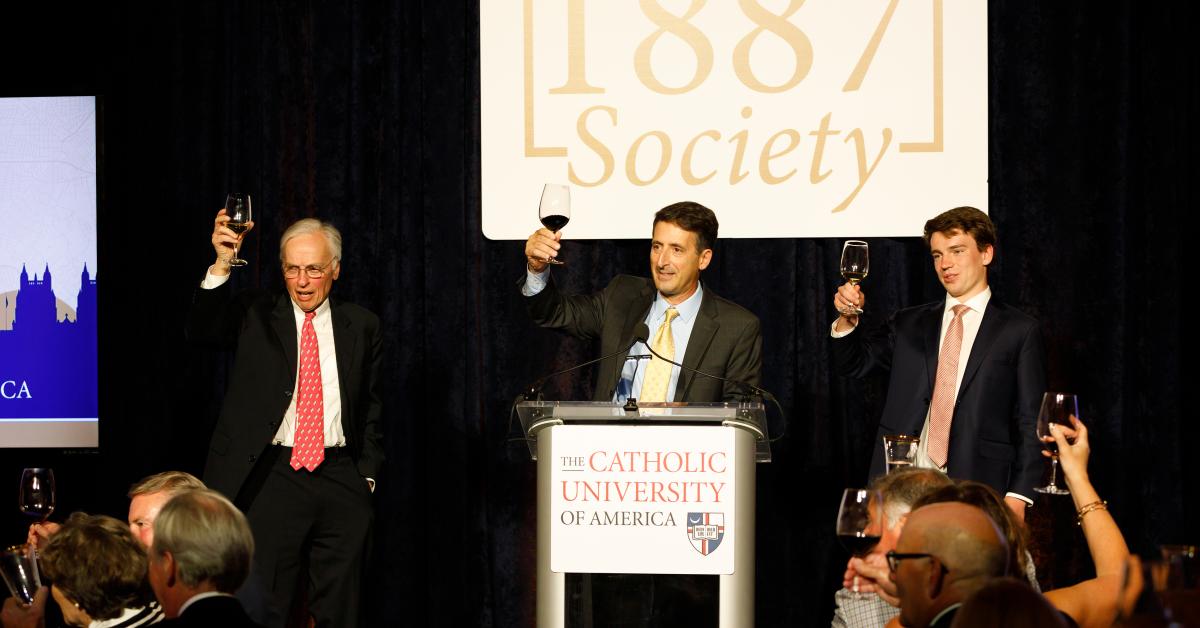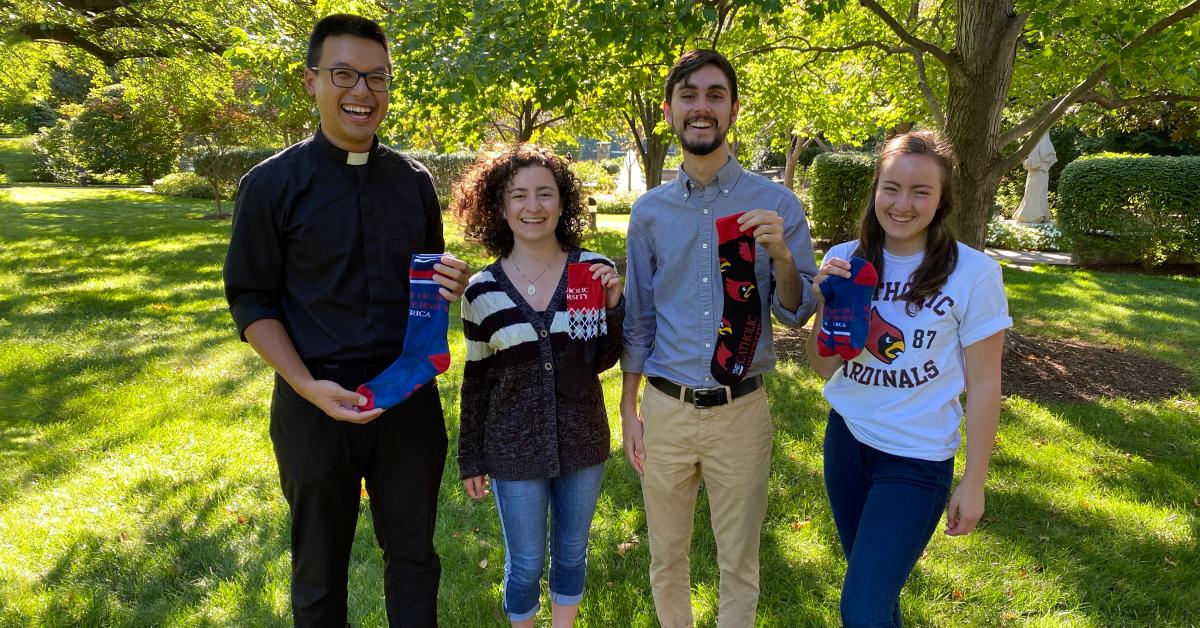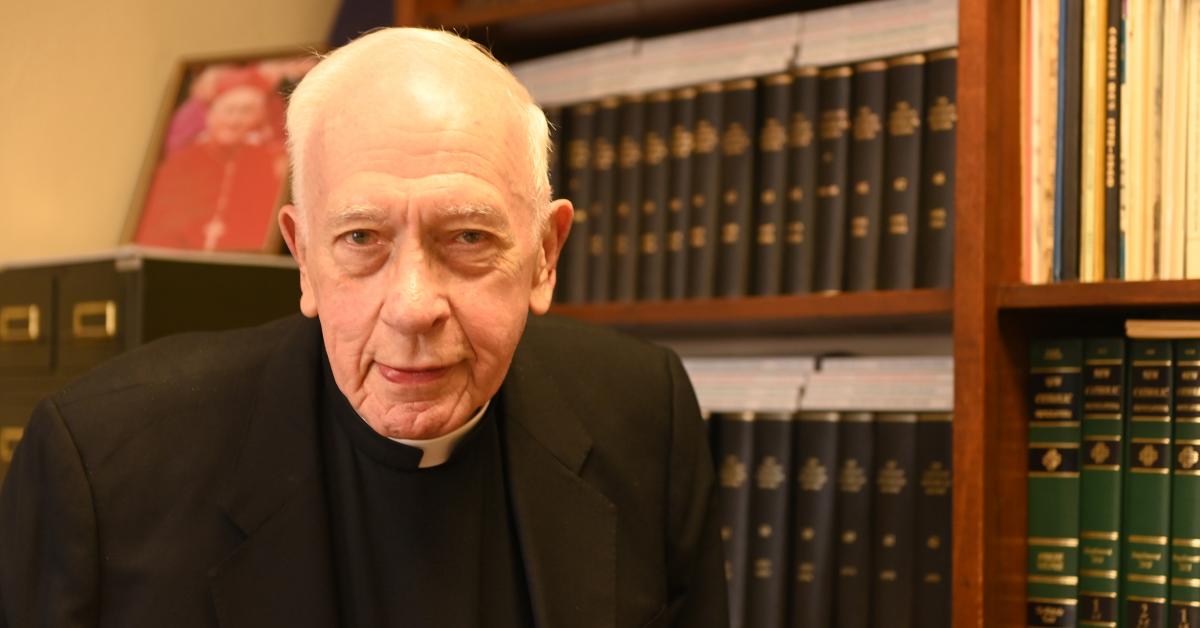No holds barred! Discover the hidden secrets of the University Libraries at The Catholic University of America. The University Libraries offer resources to students, faculty, staff, and alumni, enriching instructional, research, and service programs.
As you'll learn below, the University Libraries have a storied history and offer more than just books. Enjoy!
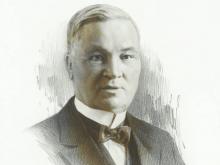
The eponymous library was named for an Irishman who immigrated to the U.S. with his family in 1847. They settled in New York, but John Kernan Mullen eventually moved to — you guessed it — Denver, where he proceeded to work in and then buy many flour mills, opening the first grain elevator in the state. John donated $500,000 to the University, which used it to open his namesake library in 1928.
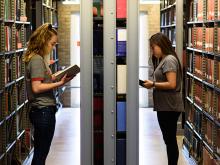
If you guessed 750,000, you’re still pretty low. One million? Getting warmer. The library system contains more than 1.3 million books and print journal volumes. But Cardinals can directly use ten times as much material through our partners in the Washington Research Library Consortium, which include the Georgetown, George Washington, and American University libraries. And of course millions of journal articles are available through our online subscriptions. That’s a lot of reading and research material!
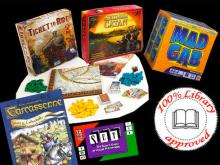
Yes, really, for up to three days. Have a sudden urge to play Monopoly (or a number of other games) but don’t own it? Mullen Library has one you can borrow.
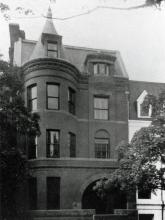
Before the opening of the current law school in 1994, the University’s Law Library was housed in both McMahon and Leahy halls. Prior to that, it made its home in the (now demolished) Dulles Mansion near Dupont Circle.
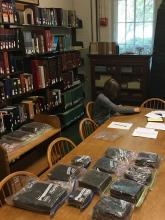
There are four:
- The American Catholic History Research Center and University Archives which maintains University records, manuscripts, the history of the University, and the history of Catholics in America;
- the Rare Books and Special Collections curates a variety of items ranging from medieval manuscripts to first editions of modern books;
- the Semitics/Institute of Christian Oriental Research (ICOR) supports research in the languages of the Bible and the ancient Near East; and
- the Oliveira Lima Library, which features about 60,000 rare and modern books, pamphlets, magazines, photos and more relating to Brazilian and Portuguese culture, covering the 16th to early 20th centuries.
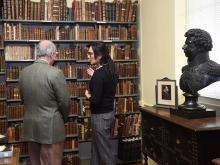
Currently located on the Garden Level of Mullen Library, it was recently awarded Brazil’s Order of Cultural Merit, the highest honor bestowed by the country’s Ministry of Culture. Oliveira Lima decided in 1916 to leave his collection to Catholic University, and the University is hoping, with the help of donors, to fund a new facility, to hire additional staff, and to ensure further preservation and conservation of the collection.
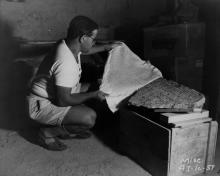
The Semitics/ICOR Library contains objects nearly 4,000 years old, which document the transition of Egyptian hieroglyphics into alphabets. In 2014, the Smithsonian Freer|Sackler borrowed 11 items from the Père Albert Jamme, M.Afr. Collection in the Semitics/ICOR Library to use in their exhibition on expeditions in pre-Islamic Arabia, "Unearthing Arabia: The Archaeological Adventures of Wendell Phillips." In addition to being a key member of the Wendell Phillips Exhibition Team, Fr. Jamme was a faculty member in the Department of Semitic and Egyptian Languages and Literatures from 1953 to 1997.
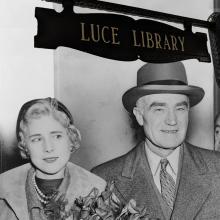
A convert to Catholicism, Clare Boothe Luce was not only a congresswoman from Connecticut and U.S. ambassador to Italy, but also an editor of Vanity Fair magazine and a playwright most famous for The Women, which has twice been made into a film. Luce was friends with Fr. Gilbert Hartke (He founded the University’s Department of Speech and Drama.) and left her theater collection of notebooks and scrapbooks to the University. The Luce Library in the Rome School of Art, Drama, and Music is named for her. (She is pictured here in a crudely Photoshopped image with her husband Henry Luce.)
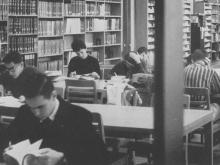
Stephen J. Connaghan, University librarian, has said that an ongoing challenge is the breadth of work to be done in still continuing to support traditional library needs while adding support for newer services. "Our biggest needs are for resources to properly preserve and share our special collections, which includes digitizing them and improving our facilities. We also need resources to expand and update our public spaces for our students to work individually or in teams while using latest technologies."
Published on: Wednesday, February 27, 2019
Campaign Theme: Academic Environment
Tags: University Libraries, The Fund for Catholic University



